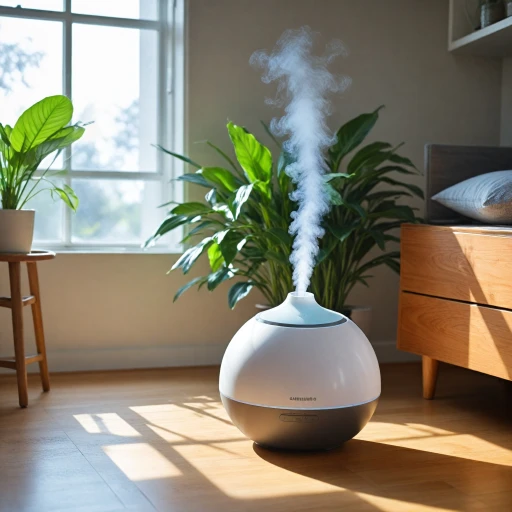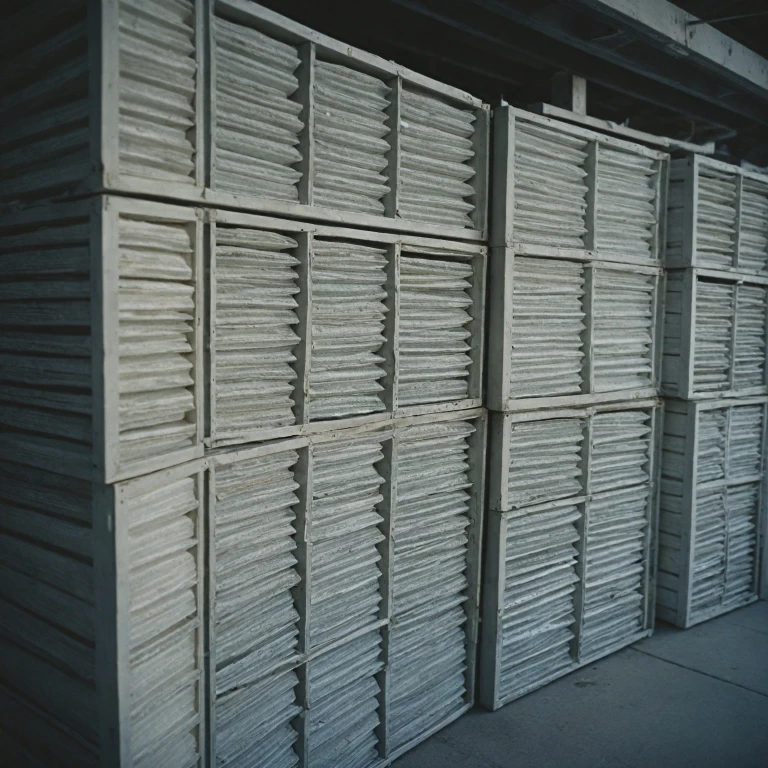Why Choose Bulk Air Filters 20x20x1?
Exploring Bulk Air Filter Advantages
Purchasing bulk air filters in the standard 20x20x1 size provides a range of benefits for homeowners and businesses alike. Whether you’re looking to enhance your HVAC system's efficiency or seeking to optimize indoor air quality, bulk buying is a practical and cost-effective solution.
Buying in bulk allows you to save on the current price, making air quality maintenance more affordable over time. When you opt for a bulk pack, you reduce the frequency of purchasing at regular intervals, which can help in maintaining your air filters, ensuring high filtration efficiency and superior air quality. Given the rising importance of clean air, it’s crucial to replace furnace air filters regularly to capture dust, mold spores, and airborne particles effectively.
When selecting bulk air filters, it’s important to consider the \`MERV rating\`. This will determine the filter's ability to capture small particles, thus impacting the air filtration quality provided to your HVAC system. The higher the MERV rating, the more allergens, such as pet dander, are captured, improving your indoor environment. The type of material and its pleated design also play critical roles in determining the filter's efficiency and longevity.
For more insights into the various benefits of different filter options, including the validated experiences from those who have made a verified purchase, you might find this
article on Blueair filters helpful.
The Importance of Air Quality
Why Indoor Air Quality Matters
Indoor air quality is crucial for maintaining a healthy living environment. With the increasing prevalence of allergies and respiratory issues, ensuring that your home or office has clean air is more important than ever. A well-functioning air filter can significantly improve air quality by capturing airborne particles, including dust, pet dander, and mold spores, which can impact your health and well-being.
Air filters with a high MERV (Minimum Efficiency Reporting Value) rating are particularly effective in trapping these particles due to their superior filtration capacity. They are designed to enhance the efficiency of your HVAC system and provide cleaner air by reducing the presence of potentially harmful pollutants. For example, a filter with a suitable MERV rating will effectively capture larger particles such as dust and pet dander, but also smaller particles like mold spores, contributing to a healthier indoor environment.
Choosing the right air filter, such as a pleated air filter, can not only improve air quality but also ensure optimal performance of your furnace and HVAC system. Maintaining proper indoor air quality supports overall health, making the investment in quality air filters a wise decision. For more information on the importance of regular filter replacement and ensuring optimal air quality, you can visit
this guide.
Cost-Effectiveness of Bulk Purchases
Maximizing Savings Through Bulk Filtration Purchases
Purchasing air filters in bulk, especially the widely-used 20x20x1 size, can be a strategic decision for those looking to improve air quality while reducing costs. While the initial expenditure may seem higher, the cost-effectiveness of buying a filter pack in larger quantities becomes apparent over time.
- Price Efficiency: The current price for a single furnace air filter may seem reasonable. However, purchasing filters in bulk reduces the cost per unit, offering significant savings in the long run.
- Consistent Air Quality: Utilizing these filters ensures a steady improvement in air quality. With a bulk purchase, replacements can be made regularly as recommended, typically every 90 days, ensuring that the filtration system operates at maximum efficiency. This is particularly crucial for capturing airborne particles such as dust, pet dander, mold spores, and other allergens.
- Time-Saving: Buying a filter pack in advance eliminates the need to frequently reorder, allowing for continued and consistent maintenance of indoor air quality.
When bulk purchasing, consider the MERV rating of the air filters. Filters with a higher MERV rating ensure a superior level of particle filtration, trapping finer elements that could degrade air quality. The choice of air filter should align with your HVAC system's specifications to optimize performance. A detailed examination of these aspects is essential to leveraging the benefits of bulk filter purchases efficiently.
For more insights on how air filtration impacts air quality, explore our detailed analysis on
understanding the role of an air compressor intake filter. It offers valuable knowledge for those committed to maintaining pristine indoor environments.
Compatibility with HVAC Systems
Ensuring Compatibility with Your HVAC System
When considering bulk air filters, particularly the 20x20x1 size, it's crucial to ensure they are compatible with your HVAC system. An HVAC system's efficiency heavily depends on the type and quality of air filters installed. Therefore, understanding the interaction between your system and the chosen filters could save you from potential inefficiencies and costly repairs.
- System Specifics: Every HVAC system is designed with specifications that require a particular type of air filter. The size and model, such as 20x20x1, need to be a match to ensure optimal performance. Using the incorrect filter can strain the system or lead to insufficient air filtration.
- MERV Ratings Importance: Filters come with a Minimum Efficiency Reporting Value (MERV) rating which signifies their ability to capture various sizes of airborne particles. HVAC systems often have recommendations for necessary MERV ratings to avoid reduced airflow or system damage. A higher MERV rating means better filtration but can also increase resistance affecting system efficiency. Finding a balance between filtration efficiency and system requirements is key.
- Filter Material Impact: The material of the air filter, whether pleated or fiberglass, can influence how well your system operates. Pleated filters usually offer higher efficiency in capturing dust, mold spores, and pet dander compared to standard fiberglass filters.
- Furnace Air Considerations: If your HVAC system includes a furnace component, it's essential to select a filter that can handle the load without impeding airflow. Furnace air filters, often overlooked, play a significant role in maintaining indoor air quality by trapping dust and other particles before they circulate throughout your home.
By focusing on the compatibility of air filters with your HVAC system, you'll ensure the longevity of the system's components and maintain high air quality standards in your living space. This attention to detail results in better air filtration and can physically save money in the long run by avoiding premature equipment wear and tear.
Choosing the Right Filter Material
{"
Determining the Best Filter Material for Your Needs
When selecting bulk air filters in the 20x20x1 size, one of the key considerations is the type of filter material you opt for. The material influences the air filter's efficiency, its MERV rating, and ultimately impacts your HVAC system's performance as well as indoor air quality. Let’s explore the options and their advantages:
-
Fiberglass Filters: These are often more budget-friendly and are suited for basic filtration tasks. They capture large airborne particles like dust and lint, although they might not be ideal for filtering out smaller contaminants like mold spores or pet dander.
-
Pleated Filters: Offering a higher MERV rating, pleated filters are designed to capture smaller particles, making them a great choice to enhance air quality by trapping allergens and even some bacteria. The pleats increase the surface area, effectively improving filtration efficiency over a longer period without a significant increase in price.
-
HEPA Filters: Though not commonly used in residential HVAC systems due to their size and dense material, HEPA filters are excellent for environments requiring the utmost in air quality control. They can remove 99.97% of airborne particles which can be particularly beneficial for those sensitive to allergens or respiratory issues.
-
Carbon Filters: If you're dealing with odors or VOCs (Volatile Organic Compounds), carbon filters could be beneficial. Their primary function is to adsorb gases and odors, ensuring a fresher-smelling indoor environment.
When choosing your filter material, it's essential to consider both the specific needs of your household and the MERV rating that your HVAC system can accommodate. Higher MERV ratings aren’t always better if your system isn’t designed to handle them, as they can restrict airflow and reduce efficiency. Additionally, purchasing in bulk not only saves costs as mentioned, but also ensures you have a supply ready when a replacement is due every few days ago typical usage suggests.
For even more insights into how air filters function within your air quality system, considering the role of different filter types can be beneficial.
Maintenance Tips for Air Filters
Efficient Maintenance for Optimal Filtration
Maintaining your air filter is key to ensuring sustained filtration efficiency and preserving the quality of indoor air. Regular maintenance helps in capturing dust, mold spores, and other airborne particles that can affect your health. Here are some essential tips to keep your air filters, especially those with a high MERV rating, functioning at their best:
- Regular Inspection: Check your air filters every 30 days, especially during heavy usage periods like summer and winter. This ensures that you are not overworking your HVAC system unnecessarily. A clogged filter can disrupt airflow and reduce energy efficiency.
- Timely Replacement: Depending on the capacity MERV, the general recommendation is to replace filters every 90 days. However, households with pets or allergy sufferers might need replacements more frequently, usually every 60 days to effectively capture pet dander and efficiency allergen particles.
- Choose the Correct Size: Confirm the actual size of your filter. A mismatch could allow dust to bypass the filtration system, affecting air quality. Filters come in various sizes, like 20x20x1, and it’s crucial to use the correct size for your furnace air and HVAC system.
- MERV Rating Matters: While choosing between pleated filters, consider your MERV air requirements. A higher MERV rating generally indicates better efficiency in capturing smaller particles. However, ensure compatibility with your current system to avoid over-restriction of airflow.
- Consider Bulk Purchases: Investing in a bulk filter pack could be more cost-effective. Purchasing packs at the current price allows for convenient replacements without frequent trips to the store.
By following these maintenance tips, you can save on energy bills and extend the life of your HVAC system. Keeping up with these practices ensures that your home remains a sanctuary of clean, allergen-free air.

